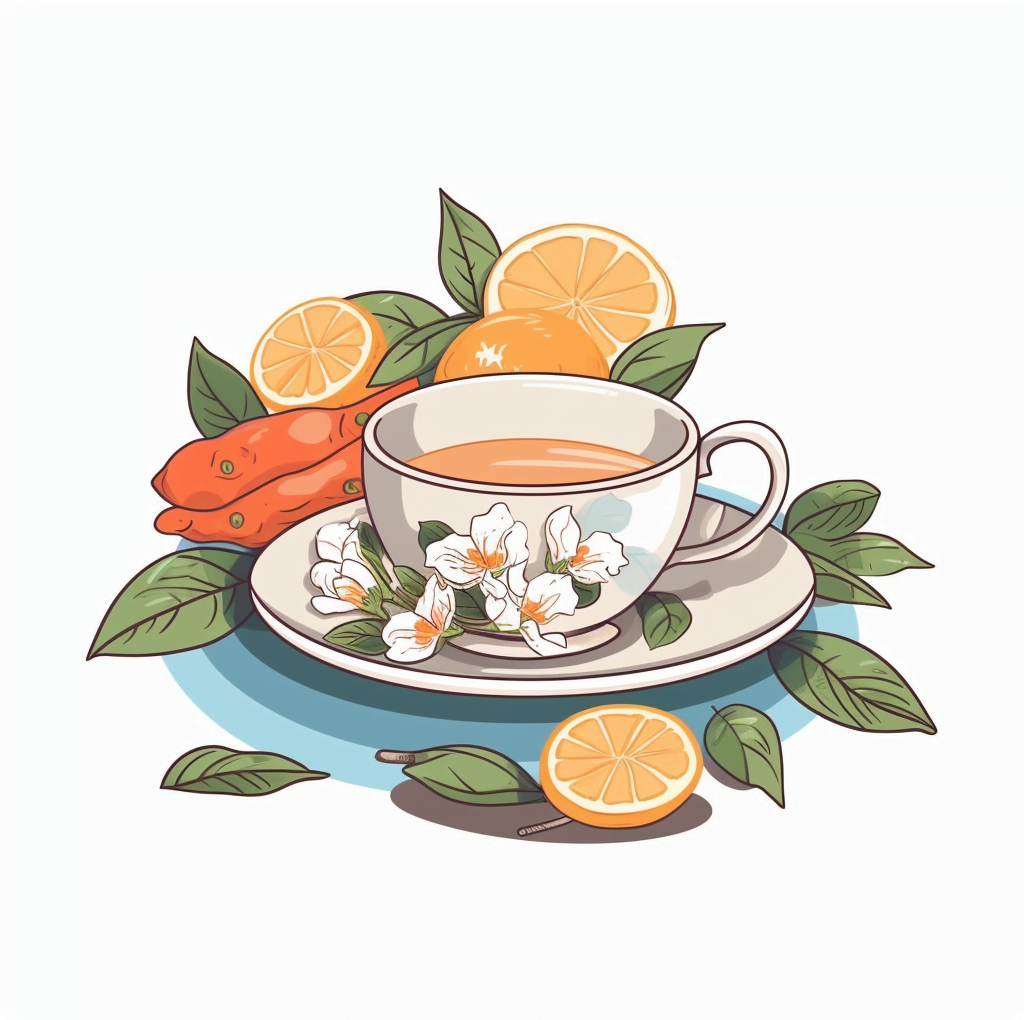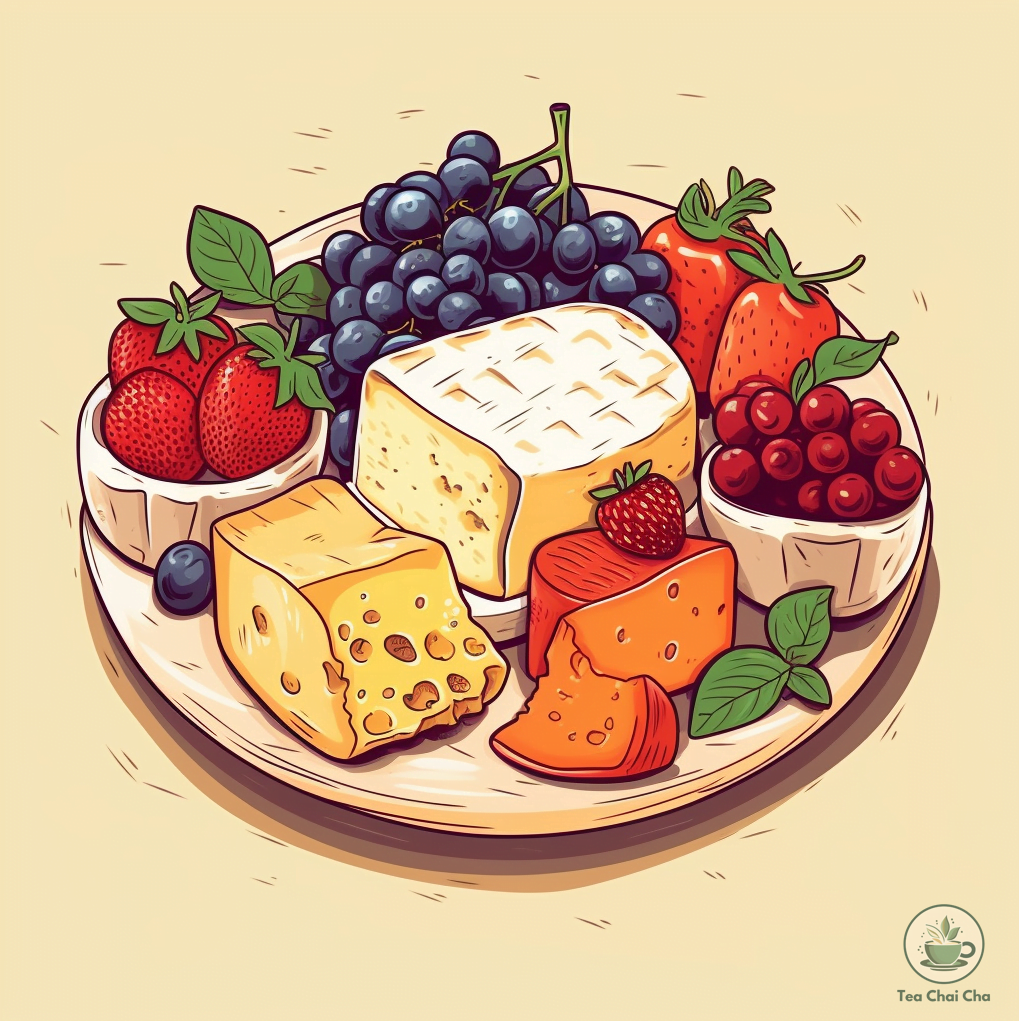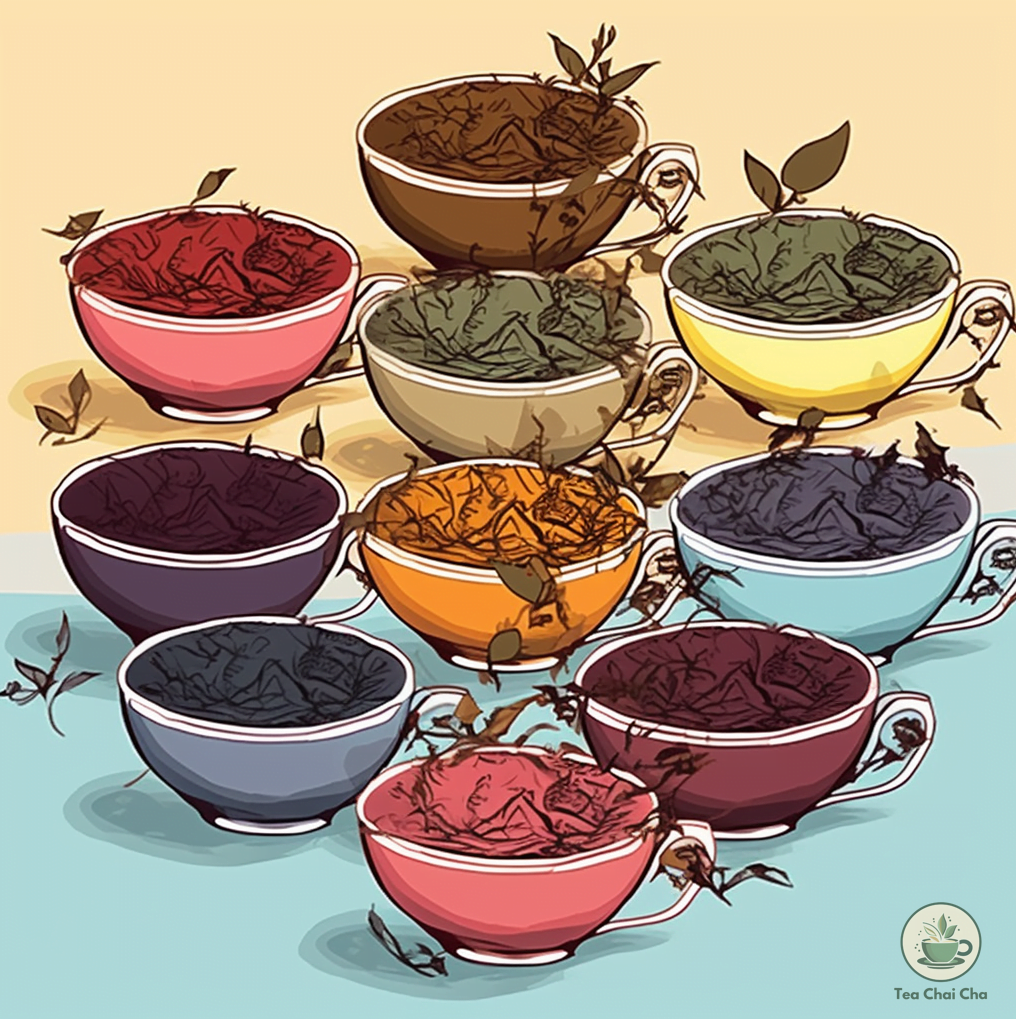We all know there’s a crazy variety of tea blends out there, each with its own vibe – flavor, scent, and color on fleek!
Black tea’s got that strong taste and dark amber swag, green teas rock that pale yellow, slightly grassy flavor, and chai tea brings the nutty and spicy party, am I right?
But hold up, what does white tea taste like?
White tea tastes mild and slightly sweet. It has a subtle flavor with hints of honey and a touch of floral notes. It’s not as strong as black or green tea, making it a gentle and refreshing choice if you prefer a milder tea.
Want to learn more about its flavor? Keep scrolling then!

What Does White Tea Taste Like?
White tea is known for its gentle and delicate taste, with flavors that are often described as floral, fresh, and slightly fruity, similar to hints of cucumber or melon.
Some types of white tea, like Shou Mei, can have a slightly more robust character, featuring nutty and earthy notes, along with a sweet touch of honey flavor.
So, unlike its cousin green tea, white tea brings a lighter vibe to the party, and you won’t find any of that “grassy” drama here. Instead, it’s all about that smooth and slightly sweet goodness that’s pure bliss in a cup.
Just imagine sipping on a cup loaded with apricot, honeydew, grape, or a little lavender loving – it’s like a dreamy stroll through a blooming garden.
Different Tasting Notes of White Tea
White tea is renowned for its delicate and subtle flavor profile, which sets it apart from other types of tea.
Here are some prominent tasting notes that you’ll notice:
1. Floral Notes
One of the most distinctive features of white tea is its floral notes.
You might notice hints of jasmine, honeysuckle, or even a light rose-like aroma when sipping a cup of white tea.
These floral notes are a result of the tea leaves’ processing and the terroir (environmental factors) in which the tea is grown.
White tea is made from young tea buds and leaves, and it undergoes minimal oxidation and processing.
This gentle handling of the tea leaves preserves the natural compounds responsible for the floral notes.
2. Fruity Undertones
In addition to its floral notes, white tea also offers subtle fruity undertones.
You may detect a mild sweetness with hints of apricot, peach, or melon in some white tea varieties.
The presence of these fruity notes can be attributed to the tea plant’s genetics, the specific cultivar, and the environmental conditions where it is grown.
Certain white tea cultivars are naturally more inclined to produce fruity notes due to their genetic makeup.
Additionally, the soil and climate in the tea-growing region play a significant role in shaping these flavors.
The gentle processing of white tea allows these fruity characteristics to shine through, making it a unique and enjoyable tea experience.
3. Grassy Freshness
White tea’s grassy notes are another aspect of its flavor that sets it apart.
These notes can evoke a sense of freshness and naturalness when sipping the tea.
The grassy taste in white tea is primarily a result of the tea leaves’ young age and minimal oxidation.
Since white tea is made from the youngest tea leaves and buds, it contains a higher concentration of chlorophyll, the green pigment found in plants.
This chlorophyll content gives white tea its grassy, vegetal notes.
The minimal oxidation process allows these grassy flavors to remain intact, creating a tea with a light and refreshing character.
Also read – What Does Bubble Tea Taste Like? DIY Boba Recipe

Flavors That Pair Well with White Tea
Ready to take your white tea experience to the next level? Oh, you bet!
I have some fantastic culinary companions lined up for your sipping pleasure.
So, buckle up and get ready for a taste sensation that’ll make your taste buds do a happy dance!
1. Sweets and Desserts
Imagine this – a velvety piece of white chocolate melting in your mouth while sipping on a delicate cup of white tea.
Oh, the bliss! White tea’s floral notes and natural sweetness harmonize like a perfect duet with desserts.
Think macarons, shortbread cookies, and fruity tarts.
2. Fruits and White Tea
Juicy peaches, succulent berries, or tangy citrus – all mingling in harmony with your white tea.
The crisp and refreshing taste of white tea complements the natural sweetness of fruits like a match made in flavor heaven.
3. Savory Treats
White tea is surprisingly delightful when paired with savory dishes.
Sip your way through a delightful brunch with smoked salmon sandwiches, delicate cheese platters, or even light salads.

Taste of White Tea vs. Other Tea Types: What Makes It Stand Out?
Let’s learn what makes white tea so special compared to its tea buddies out there.
You know, it’s like having a secret ingredient that sets your favorite dish apart from the rest!
So, what’s the deal with white tea, and why should you be sipping it like a true tea connoisseur?
White Tea vs. Green Tea
We have white tea on one side, all pure and untouched like a diamond in the rough.
And then we have green tea, vibrant and full of life like a colorful party!
But hey, what sets white tea apart from the green stuff?
- Subtle Sophistication: White tea’s got that delicate touch, brimming with grace and finesse. It’s like a gentle whisper to your taste buds, not too overpowering but oh-so-soothing.
- Minimalist Approach: White tea’s all about keeping it simple. No fancy processing or rolling, just the tender buds and leaves air-drying like it’s chill time in the sun.
- Antioxidant Power: Oh, and don’t even get me started on those antioxidants. White tea’s got them in abundance, making it a beauty booster from within.
White Tea vs. Black Tea
So, what makes white tea stand tall against the bold and robust black tea?
- Mellow and Light: White tea’s got that Zen vibe. It’s all about being calm and collected, not hitting you like a caffeine punch but gently lifting your spirits.
- Unprocessed Goodness: You know how black tea’s all fermented and oxidized? Well, white tea’s like, “Nah, I’m staying au naturel!” It’s like sipping nature straight from the cup.
- Less Caffeine: If you want to take it easy on the caffeine, white tea’s your wingman. It’s got way less of that jolt compared to its dark counterpart.
White Tea vs. Herbal Tea
It’s time to talk about the delightful face-off between white tea and herbal tea.
So, what’s white tea got that herbal tea hasn’t?
- From the Same Plant, But Not Quite: White tea comes from the Camellia sinensis plant, just like green and black teas. But herbal tea’s like, “I’m my own boss!” It can be made from various herbs, fruits, and spices. Diverse, man!
- Natural Sweetness: White tea’s got a hint of natural sweetness, while herbal tea can be like a fruit salad explosion in your cup. Do you want some fruity fun or a touch of floral elegance? Take your pick!
- The Calm and the Wild: White tea’s like a calm breeze, soothing and composed. Herbal tea, on the other hand, can be wild and adventurous, taking you on a flavor rollercoaster.
Tips for Choosing the Best Tasting White Tea
Ready to dive into the world of white tea and find the finest brew for your taste buds?
Check out these tips to get your hands on the most fabulous white tea out there:
1. Understanding the Grades: Silver Needle, Bai Mu Dan, and more
Now, listen up! White tea comes in different grades, and each one brings its own unique flavor party to the table. Here are the top contenders:
- Silver Needle: This one’s the cream of the crop! It’s made from delicate, silvery-white buds, giving you a smooth and delicate taste. It’s like sipping on pure elegance!
- Bai Mu Dan: Fancy a bit more body in your cup? Bai Mu Dan, or White Peony, has both buds and leaves, offering a slightly bolder flavor while still keeping it classy.
- Shou Mei: If you want a richer taste without losing the subtlety, Shou Mei’s got your back. It’s made from larger leaves and delivers a smooth, fruity experience.
2. Sourcing: Trustworthy Tea Retailers and Online Gems
Alright, now that you know your white tea grades, where do you find these fabulous leaves? Look no further, I got you covered!
- Local Tea Shops: Hit up those cozy tea shops in your area. They usually stock high-quality teas and might even have some unique blends for you to try. Support local!
- Online Stores: Ah, the virtual treasure trove! Check out online retailers with a good rep and customer reviews that’ll put your mind at ease. The interwebs have some hidden gems waiting to be discovered!
- Direct From Farms: For the true tea enthusiasts, get your hands on some farm-fresh tea! Some tea estates sell their products directly to consumers, and that’s a straight-up win-win for freshness and supporting the tea community.
3. Organic and Sustainable: Sipping with a Clear Conscience
Feeling good about your tea not only means it tastes good but also that it’s good for the planet. Keep it green!
- Organic Certifications: Look for teas with official organic certifications. That means fewer chemicals and more love for Mother Earth!
- Sustainable Practices: Seek out tea brands that are all about sustainability and supporting the environment. It’s like giving the Earth a big old hug with every sip.
- Eco-Friendly Packaging: We’re all about reducing waste, right? Look for teas that come in recyclable or biodegradable packaging. Keep it clean and green!
Frequently Asked Questions (FAQs)
How would you describe the taste of white tea?
White tea flavor profile is delicate. It boasts a subtly sweet flavor, often with notes of floral, fruity, or creamy undertones. It’s less ‘grassy’ compared to green tea, providing a soothing, nuanced taste experience.
Does white tea taste like regular tea?
White tea offers a unique taste that’s generally lighter and more delicate than regular black tea. It’s less astringent and tends to carry a mild, subtly sweet flavor.
Do you put milk with white tea?
While personal preference rules, it’s generally not recommended to add milk to white tea. The milk can overshadow the tea’s delicate flavors and detract from the unique tasting experience it offers.
Is white tea supposed to be sweet or bitter?
White tea isn’t supposed to be bitter. Instead, it offers a subtly sweet and delicate flavor with a refreshing, light aftertaste, devoid of the astringency often found in green or black tea.
What does a white tea shot taste like?
A white tea shot offers a concentrated taste of white tea in a smaller serving. It delivers a potent burst of white tea’s subtly sweet and delicate flavors, providing an intensified tasting experience.
